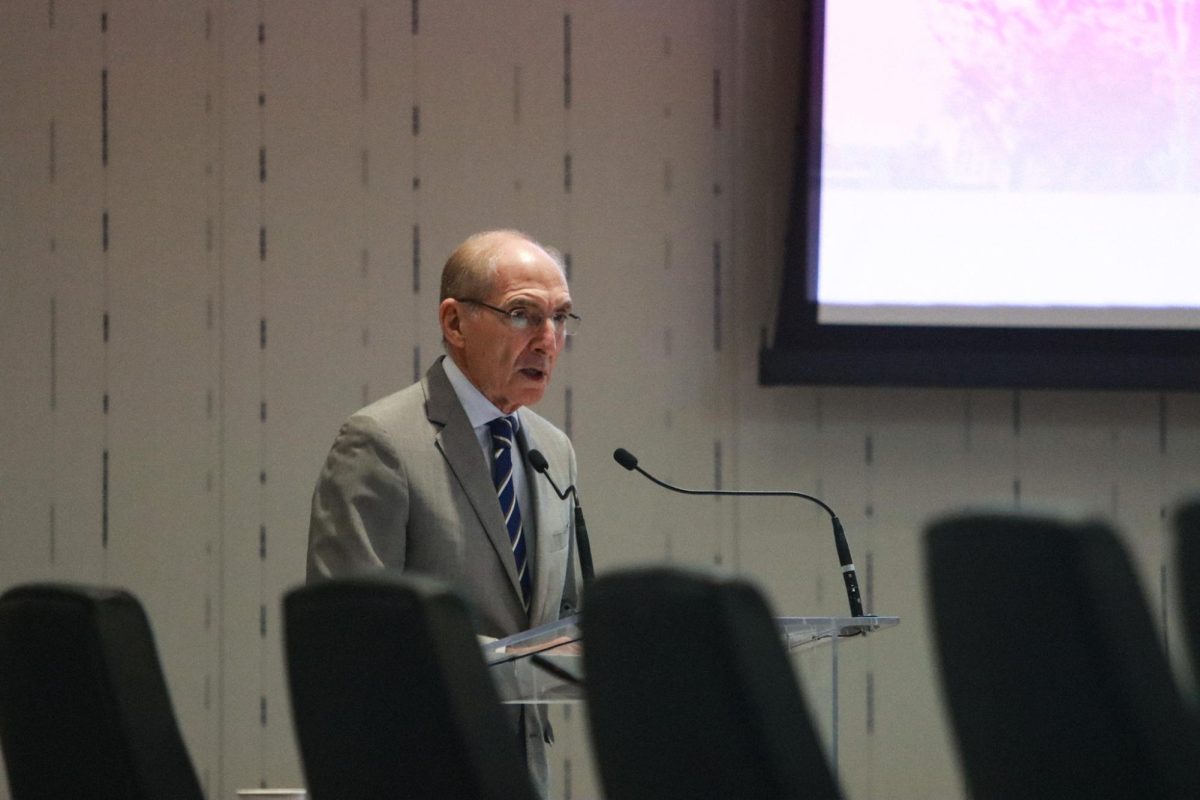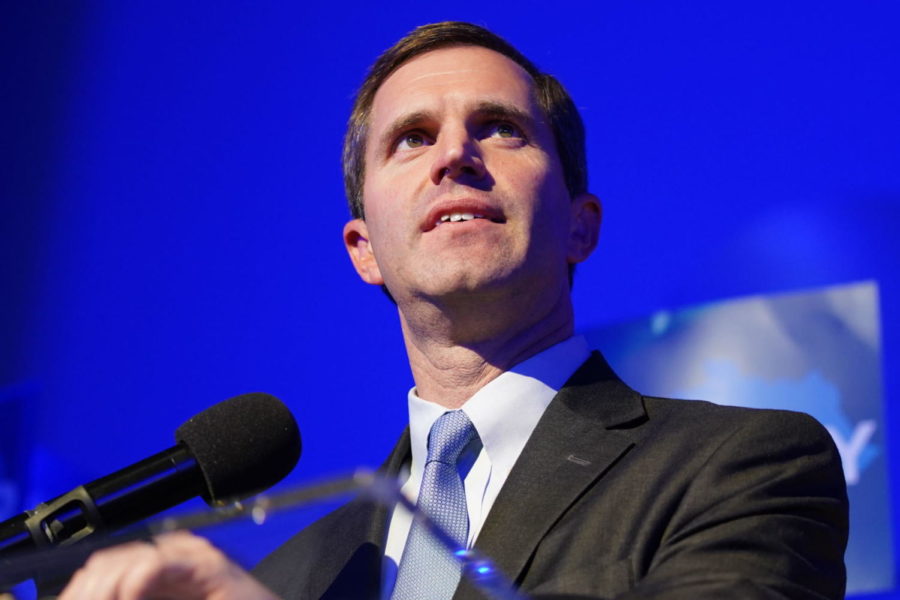What Gov. Beshear’s NIL executive order means for Kentucky athletics
Candidate for Governor Andy Beshear talks to the crowd during the democratic campaign watch party on Monday, Nov. 4, 2019, at the C2 Event Venue in Louisville, Kentucky. Photo by Breven Walker | Staff
June 25, 2021
July 1, 2021 will be remembered as a landmark date in the world of collegiate athletics, as multiple states will begin allowing student-athletes the opportunity to profit off their name, image and likeness, often referred to as NIL.
On Thursday afternoon, Kentucky Governor Andy Beshear issued an executive order that will do the same for Kentucky student-athletes, making the commonwealth the seventh state to introduce this legislation.
“Today’s step was done in cooperation with all of our public universities as well as leadership of both parties,” Beshear said in a news release on Thursday. “This action ensures we are not at a competitive disadvantage in recruiting, and also that our student athletes have the same rights and opportunities as those in other states. For any individual athlete, their name, image and likeness are their own and no one else’s.”
The announcement follows a Supreme Court decision given on Monday that ruled against the NCAA, allowing schools to give educational benefits to student-athletes.
UK athletic director Mitch Barnhart, as well as multiple coaches released statements Thursday afternoon after the announcement was made official.
The NIL debate began in 2019 after California passed the “Fair Pay to Play” act, allowing college athletes to earn sponsorships and endorsements without facing punishment from universities. The act is set to go into effect July 1 2023.
Fast forward to 2021 and now within one week, seven states will have legislation in place that allows players to benefit from their NIL.
The impact of this is monumental and will change the landscape of collegiate athletics forever.
No longer can a university prohibit student-athletes from earning compensation from the use of their NIL, a shift of power from the hands of the NCAA to the young adults who bring in millions of dollars to these schools year by year.
While Beshear’s order does give power to the players with NIL, there are still some exceptions and rules that must be followed. Possibly the biggest of all exceptions is that compensation in exchange for a contract of endorsement or promotion cannot conflict with the university’s endorsements. Meaning that since UK is a Nike school, no UK athlete could sign an endorsement contract with Adidas.
Universities are not allowed to arrange compensation for athletes; however, they will be allowed to create limitations for when athletes are allowed to participate in sponsorships, and nothing that could be viewed as detrimental to the university will be allowed.
The University of Kentucky is partnered with Opendorse, a social media and branding company whose goal is to help athletes with their branding and NIL. UK also released its “Kentucky Road” program, which like Opendorse, is committed to assisting athletes in this new era of NIL.
Barnhart held a teleconference on Friday to address the executive order and what it means for UK athletics moving forward. Barnhart is aware that this is just the beginning and is an “early stage of a marathon” as NIL legislation could be changing weekly.
“We’re still awaiting NCAA governance next week. They will probably come through with some new language as to what this is,” Barnhart said.
As July 1 rapidly approaches, one long chapter finally ends while a new one begins. More information will become available on NIL rights in the coming weeks as the NCAA, universities and student-athletes begin to adjust to this major change.



























































































































































